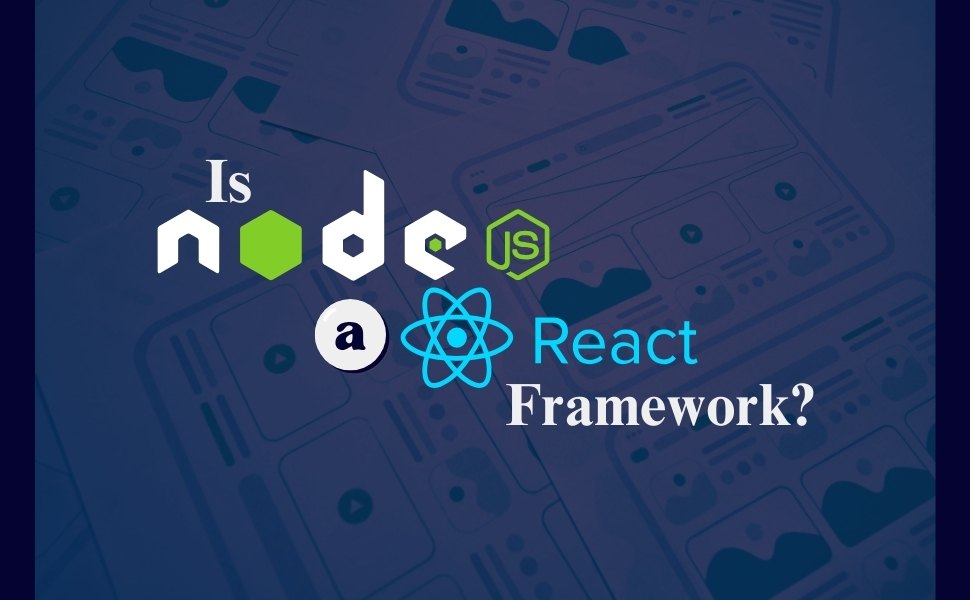The purpose of your website is to connect with your audience, share valuable information, and showcase your products or services. It’s a digital space that represents your brand. When asking What Is the Purpose of a Website, it’s essential to focus on engaging users and driving conversions. A clear purpose ensures better user experience and success.
It’s true that knowing what is the purpose of your website is just the first step. Understanding why it’s important helps guide your design, content, and strategy. Without a clear purpose, it becomes difficult to meet your goals or engage visitors effectively. Let’s explore why defining your website’s purpose is so crucial for success.
What is a Website?

A website is a collection of interlinked web pages that share a domain name. It acts as a digital space for businesses, individuals, or organizations to share information, offer services, or sell products. Each page is designed to serve a specific purpose, whether it’s educating visitors, promoting products, or providing contact information.
However, Websites are made up of various elements like text, images, videos, and interactive features that work together to provide users with the information they need. These elements should be aligned with the website’s purpose, making it easier for users to navigate and engage with the content.
In today’s digital world, having a website is essential for online presence and brand visibility. It allows businesses to reach a broader audience, offering users access to their services or products 24/7. A well-designed website can enhance credibility and foster trust with your audience.
Furthermore, websites serve as an important marketing tool. They help with SEO optimization, attract targeted traffic, and provide a platform for promoting products or services. Each website should be built with a clear objective that supports your overall business strategy, ensuring long-term success.
Related: Website Redesign Goals
What Is the Purpose of a Website?

A website serves as a digital storefront, a communication hub, and a platform for information sharing. Its purpose can vary widely depending on the creator’s intentions. Here are some common goals:
- Information Dissemination: Websites can be used to share knowledge, news, and updates.
- Product or Service Promotion: Businesses use websites to showcase their offerings and attract customers.
- Brand Building: Websites help establish and strengthen a company’s identity and reputation.
- Community Building: Websites can create online communities where people can connect, share interests, and collaborate.
- Personal Expression: Individuals can use websites to express themselves creatively or share their personal experiences.
- Education and Training: Educational institutions and organizations can offer online courses and resources.
Essentially, a website’s purpose is limited only by the imagination of its creator.
Key Objectives and Benefits of Defining Your Website’s Purpose

A website can serve different purposes, from showcasing products to sharing information or building a community. When you wonder what could be the general purpose of a website you can find out some simple and valuable points. Let’s learn them.
Establishing Online Presence
A website plays a vital role in establishing your online presence. It acts as a digital storefront where potential customers can learn about your brand, products, and services. By having a well-designed site, you make a strong first impression and position yourself effectively in the digital landscape.
Navigating User Experience
Understanding the purpose of your website helps in navigating user experience. A clear purpose ensures that your website’s layout and features are designed with user needs in mind. This leads to intuitive navigation and a more satisfying experience for visitors, which encourages them to stay longer and explore more.
Content is King
The adage “content is king” rings true when defining your website’s purpose. Content should be tailored to meet the needs and interests of your target audience. High-quality, relevant content not only engages visitors but also supports your website’s goals, whether they’re educational, promotional, or informational.
Driving Traffic
A well-defined website purpose aids in driving traffic to your site. By focusing on specific goals, such as offering valuable information or showcasing products, you attract users who are interested in what you have to offer. Effective content and SEO strategies can enhance your site’s visibility and draw in more visitors.
Conversion Rate Optimization
Knowing your website’s purpose is crucial for conversion rate optimization. It allows you to tailor calls to action and other elements to effectively guide visitors towards desired actions, such as making a purchase or signing up for a newsletter. This alignment boosts your ability to convert visitors into customers.
Measuring Success
Once the purpose is clear, you can focus on measuring success through relevant metrics. Track performance indicators like user engagement, conversion rates, and traffic sources. These insights help you understand how well your website is meeting its objectives and where improvements might be needed.
Adaptability and Innovation
A well-defined purpose supports adaptability and innovation. As your business evolves, your website can be adjusted to reflect new goals and trends. This flexibility ensures that your site remains relevant and effective in achieving its purpose, even as the digital landscape changes.
Building Trust and Credibility
Your website’s purpose plays a key role in building trust and credibility. A professional design, clear messaging, and valuable content contribute to a trustworthy image. This credibility encourages visitors to engage more deeply and fosters long-term relationships with your audience.
Community Engagement
For websites focused on community, understanding the purpose enhances community engagement. It helps create spaces for users to connect, share, and interact. Effective community sites foster user participation and build a sense of belonging, which can drive ongoing engagement and loyalty.
Learn More: Step-by-step guide to creating a Successful E-commerce website
Why is It Important to Know the Purpose of a Website?

Understanding the purpose of your website is essential for its overall success. It influences everything from user experience to long-term growth. Below, we’ll explore why a clear website purpose is so important in different areas.
Foundation of Website Success
It is truly important to understand the purpose of your website for its success. It acts as the foundation for everything, from design choices to content creation. Without a clear purpose, your website may struggle to attract the right audience or meet business goals.
Creating a Seamless User Experience
When you know the exact goal of your website, it becomes easier to create a seamless user experience. This includes selecting the right features, organizing the content, and ensuring easy navigation. A well-defined purpose ensures that visitors find what they need quickly, which improves engagement and conversions.
Effectively Targeting Your Audience
Knowing the purpose helps with targeting your audience effectively. Whether your website’s goal is to sell products, generate leads, or provide information, it needs to speak directly to the needs of your visitors. This alignment ensures that the right people are drawn to your site, increasing the chances of success.
Measuring Website Performance
It also aids in measuring website performance. If you know the purpose, you can track metrics that matter, like conversions or bounce rates. This allows you to make data-driven decisions and adjust your strategies for better results over time.
Guiding Future Growth
Lastly, a clear purpose provides direction for future growth and development. As your business evolves, your website can be updated in ways that continue to serve its core objectives, ensuring long-term relevance and success.
Besides them, let’s seek some more reasons:
A website is essential in today’s digital age for several reasons:
- Accessibility: It provides a 24/7 platform for information and services, making it accessible to a global audience at any time.
- Credibility: A well-designed website can enhance a company’s or individual’s credibility and professionalism.
- Branding: It allows for consistent branding across all digital channels, helping to build recognition and trust.
- Customer Engagement: Websites can be used to engage with customers through various means, such as contact forms, social media integration, and online stores.
- Search Engine Optimization (SEO): Websites can be optimized to improve their visibility in search engine results, driving traffic and increasing online presence.
- Cost-Effective: Compared to traditional marketing methods, websites can be a more cost-effective way to reach a large audience.
- Information Sharing: Websites are a valuable tool for sharing information, news, and updates.
- Sales and Marketing: Online stores and e-commerce platforms allow businesses to sell products and services directly to customers.
So, a website is a versatile and essential tool for businesses, organizations, and individuals in the digital age.
Related: Website Development Timeline: 7 Super Influencing Factors
7 Most Common Purposes of Websites

Websites come in various types and for different purposes, each designed to serve a specific function or audience. Choosing the right type of website depends on your goals and the needs of your target users. Here are some common types of websites:
Business Websites
A business website is created to represent a company or brand online. It provides information about products, services, and the company itself, helping to build an online presence and attract potential clients. These websites often include contact forms, service pages, and client testimonials.
E-commerce Websites
An e-commerce website allows businesses to sell products or services directly to customers online. They feature shopping carts, secure payment systems, and product catalogs, making it easy for users to browse and buy products. The primary goal is to increase online sales.
Personal Websites or Blogs
Personal websites or blogs are platforms where individuals share thoughts, ideas, or experiences. They are often used for personal branding, showcasing hobbies, or creating an online diary. Bloggers can also monetize their sites through ads, affiliate marketing, or sponsored content.
Portfolio Websites
A portfolio website is used by individuals like designers, artists, or photographers to display their work. It’s a visual platform where creators can showcase their projects and skills to attract clients or employers. Freelancers often use portfolio sites to secure new opportunities.
Nonprofit and Charity Websites
Nonprofit organizations use websites to promote their cause, provide updates, and accept donations. These sites focus on raising awareness and encouraging support for a specific mission. They often feature volunteer sign-ups, donation forms, and stories of impact.
Educational Websites
Educational websites are created to offer resources, courses, or training materials. Schools, universities, and online learning platforms use them to provide information and lessons to students. These sites can include videos, quizzes, and interactive tools for learning.
Community and Social Websites
Websites that build online communities focus on engagement and social interaction. Social media platforms, forums, and membership sites fall under this category. Their goal is to create a space for users to connect, share, and discuss various topics.
Want to build a website that can bear your identity? Well, Boomdevs can help you out. Read Web Application Development Services of Boomdevs and you will have a clear idea about it.
What Could Be The Next Step After Identifying A Website’s Purpose?
After identifying the purpose of your website, the next step is to plan and structure it based on that purpose. This involves several key actions to ensure that the website functions effectively and aligns with your business goals.
Define Target Audience
Once you know the website’s purpose, you need to clearly define your target audience. Understanding who your visitors are helps in creating relevant content, features, and designs that resonate with them. Tailoring your site for the right audience improves engagement and conversion rates.
Plan Website Structure and Design
Next, you’ll want to focus on the website’s structure and design. This includes organizing the layout, navigation, and content flow. A clear and user-friendly design that matches your purpose ensures that visitors can easily find what they need, leading to a better user experience.
Create Purpose-Driven Content
Based on the website’s purpose, develop content that serves your goals. If the site is informational, focus on providing clear and valuable information. For e-commerce, your content should focus on product descriptions, reviews, and calls to action that encourage purchases.
Optimize for SEO
SEO optimization is a critical next step. Align your website’s content with keywords and search engine best practices to improve visibility. Proper SEO ensures your site ranks well in search engines, attracting organic traffic that is aligned with your website’s purpose.
Set Measurable Goals
Finally, establish measurable goals that align with your website’s purpose. This could be tracking conversions, gathering leads, or monitoring site traffic. Setting these goals will help you evaluate the success of your website and make necessary adjustments over time.
Read More: Expert Website Design & Development Services
Need Professional Website Help?
At BoomDevs, we specialize in creating websites that align perfectly with your business goals. Whether you need a custom website design, an e-commerce platform, or a user-friendly business site, we ensure optimal performance, seamless user experience, and effective SEO strategies. Our expert team is dedicated to delivering websites that engage users and drive results. Let BoomDevs help you build a site that supports your growth and attracts the right audience.
Want to Talk about Your Business?
Get a Quote.
Frequently Asked Questions:
Q1: Why is having a professional website important for my business?
A professional website establishes your online presence and credibility, showcasing your brand to potential customers. It helps you stand out in a competitive market, offering users a seamless experience that drives engagement, sales, and conversions.
Q2: How can BoomDevs improve the design of my website?
BoomDevs specializes in custom website design, focusing on user experience, aesthetics, and functionality. Our team ensures your site not only looks great but also provides intuitive navigation, fast load times, and is optimized for SEO, which increases visibility.
Q3: What services does BoomDevs offer for website development?
At BoomDevs, we offer a full range of services, including custom web development, e-commerce site creation, mobile responsiveness, and ongoing website maintenance. We tailor our services to meet your specific business needs and industry standards.
Q4: How does BoomDevs ensure my website is SEO-friendly?
BoomDevs integrates SEO best practices into every step of your website’s development. From keyword optimization to mobile responsiveness and site speed, we ensure your website is designed to rank well on search engines and attract organic traffic.
Q5: Can BoomDevs help with website performance and security?
Yes, BoomDevs provides comprehensive solutions for website performance and security. We optimize your website for faster load times, secure it with the latest encryption technologies, and offer regular updates to protect against vulnerabilities.
Q6: How does BoomDevs approach e-commerce website development?
For e-commerce websites, BoomDevs focuses on creating a smooth shopping experience for customers. We design secure, scalable, and easy-to-navigate platforms with integrated payment systems and user-friendly product catalogs to boost online sales.
Q7: Why should I choose BoomDevs for ongoing website support?
BoomDevs offers reliable ongoing website support, ensuring your site stays updated, secure, and aligned with your evolving business needs. From regular maintenance to performance monitoring, we provide the expertise to keep your website running smoothly over time.
Wrapping Up:
In conclusion, understanding what is the purpose of a website is key to its success. It helps guide design, content, and user experience to meet business goals. With the right approach, your website can attract the right audience and drive meaningful results. BoomDevs is here to help you create a website that fulfills its purpose efficiently.








